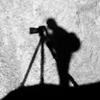The Learning Curve
Feb 19, 2016 14:31:54 #
DerBiermeister wrote:
As I said in the Introduction forum, I am brand ne... (show quote)
Welcome.
On the technical side of things there is:
#1 geting the exposure "right"
Camera manuals tell you how to do it but not why.
You may find a book by Bryen Peterson called "Understanding Exposure" very helpful in the why depatment.
#2 Focussing
The manual may be helpful here, howver you tube videos may be a lot more helful in why you choose the setting and where to focus
After that it gets a bit harder on the "arty side"
#3 Understanding light, (this will make or break your photographs)
#4 Developing your "eye"
There is another Bryen Peterson book called "Learning to see creatively" which willl help with this one.
After that leter your interests dictate which way you go - like sports, 'scapes, family pics etc.
After a while and a lot of practice you will find a lot of skills you pick up shooting one subject are directly transferable to other subjects.
I havn't touched on artfical (or additional lighting) lighting. You are correct in saying that is a whole additional topic.
Down the track you may want to look into some post processing software etc.
Feb 19, 2016 14:34:56 #
You may find this site instructional and fun. If you go to the bottom of original Camera Sim and click "view" you can change shutter speed, ISO and aperture to see their relationships.
http://camerasim.com/apps/original-camerasim/
They also have Iphone and desktop apps you can pay to download. The free version will give you a lot to think about.
Enjoy!
http://camerasim.com/apps/original-camerasim/
They also have Iphone and desktop apps you can pay to download. The free version will give you a lot to think about.
Enjoy!
Feb 19, 2016 15:18:17 #
larrywilk wrote:
You may find this site instructional and fun. If you go to the bottom of original Camera Sim and click "view" you can change shutter speed, ISO and aperture to see their relationships.
http://camerasim.com/apps/original-camerasim/
They also have Iphone and desktop apps you can pay to download. The free version will give you a lot to think about.
Enjoy!
http://camerasim.com/apps/original-camerasim/
They also have Iphone and desktop apps you can pay to download. The free version will give you a lot to think about.
Enjoy!
Just played with Camera Sim -- I can see where it will help, especially using it often. Thks
Feb 19, 2016 15:21:43 #
Well DB, you sure uncorked some really great responses! One step at a time, think like an artist, read the manual, read more than the manual, etc etc.
Nobody said what not to do: Don't learn rules! Learn about why the rules work, and then forget the rule entirely. That goes for thinking like an artist, about composition for example, and equally for the techie stuff like exposure.
Here are three quotes to think about, in relation to what to learn.
"Everything should be made as simple as possible, but not simpler."
- Albert Einstein
Don't look for the simplest explanation to be the most useful. Too simple is not good. That applies very well to the technical aspects of photography (which means almost everything, because photography is nothing but applied technology).
But, consider the same principles in the world of applied art!
"Consulting the rules of composition before taking a photograph
is like consulting the laws of gravity before going for a walk."
-Edward Weston
"The so-called rules of photographic composition are, in my
opinion, invalid, irrelevant and immaterial"
- Ansel Adams
Don't memorize the Rule of Thirds, for example. Learn about it, but then never ever actually use it. Do not measure where the 1/3rd points are in an image! Instead, look at the image to see what is best.
Nobody said what not to do: Don't learn rules! Learn about why the rules work, and then forget the rule entirely. That goes for thinking like an artist, about composition for example, and equally for the techie stuff like exposure.
Here are three quotes to think about, in relation to what to learn.
"Everything should be made as simple as possible, but not simpler."
- Albert Einstein
Don't look for the simplest explanation to be the most useful. Too simple is not good. That applies very well to the technical aspects of photography (which means almost everything, because photography is nothing but applied technology).
But, consider the same principles in the world of applied art!
"Consulting the rules of composition before taking a photograph
is like consulting the laws of gravity before going for a walk."
-Edward Weston
"The so-called rules of photographic composition are, in my
opinion, invalid, irrelevant and immaterial"
- Ansel Adams
Don't memorize the Rule of Thirds, for example. Learn about it, but then never ever actually use it. Do not measure where the 1/3rd points are in an image! Instead, look at the image to see what is best.
Feb 19, 2016 16:20:14 #
DerBiermeister wrote:
As I said in the Introduction forum, I am brand ne... (show quote)
The approach I use with newcomers to the sport and art and craft of photography is to tell them to set their camera to auto everything - if it is a Nikon set it to P - and just go out and take pictures. The point is to not allow the gear and settings to get in the way of recognizing a good photo op. The technical details will follow.
Once you have gone out and taken some pictures you have some material for critique, self critique, and questions. Invariably you will have something in mind when taking a picture that didn't quite come out the way you had hoped - and this is where the questions and answers come in. You are likely to learn more by making mistakes and learning now not to repeat them, than by studying fstops, shutter speeds, ISO values, autofocus and auto exposure modes without context.
As time goes on, the nature of what you try to do as well as your knowledge of what is possible will become increasingly complex, and when you achieve what you are after, increasingly rewarding.
I will suggest that one of the ways you will recognize the progress is to look at a picture you took a year ago - if you recognize opportunities for improvement, and you see that you made certain decisions back then that you would have handled differently were you to take the same picture today - well, you've made progress.
Feb 19, 2016 16:37:24 #
I suspect you can find and download the manual for your new camera. DSLR manuals are usually pretty good cures for insomnia read late at night. If you watch TV in the evening, have it handy and read during commercials. :-)
Feb 19, 2016 17:14:34 #
steve_stoneblossom
Loc: Rhode Island, USA
Gene51 wrote:
... I will suggest that one of the ways you will recognize the progress is to look at a picture you took a year ago...
A perfect segue to my suggestion: give some thought to how you will build your photo library. Shoot date, subject matter, or location of are probably the most popular three. Set it up in a way that works best for you, there is no wrong or right answer. You want to be able to put your finger on old images easily, even when they number in the thousands or hundred thousands. Adding keywords can be helpful as well, if you are able.
Feb 19, 2016 17:34:56 #
Like another poster said, everyone learns differently. Some like to read the manual. I only use the manual to look up a function I am interested in, or to see what the buttons do.
I got my first dslr a couple of years ago, a Nikon D3100. That really wet my appetite to learn about the camera and lenses. I found that manually setting the iso, aperture and exposure and trying infinite varieties shooting at pictures on my wall or my cd case or out the window, in all sorts of lighting and flash taught me what those controls do in terms of depth of field, noise, and colors. Using auto settings will only hide all of that. And all of those variable manual settings will change with different lenses.
I think that is a good first step. At least it was for me.
Once I felt I knew what the camera was doing I started to shoot specific types of shots, landscapes, panoramas, telephoto shots of birds and squirrels, portraits, sunsets, stars in the night sky, close ups of flowers, wide angle interiors and home exteriors, even pictures through my microscope of sand and diatoms and blood samples.
I got Photoshop and learned to crop and tweak photos to bring out the colors, shadows and highlights. I also learned to create panoramas and stack photos in Photoshop, and correct wide angle lense distortion.
Finally I started to shoot videos and learned to edit audio and video and post videos on Youtube.
I can't imagine having had the time to explore and learn all this prior to retiring, but having free time is a great pleasure, and this hobby is a big part of enjoying that time.
Good luck.
Bob
I got my first dslr a couple of years ago, a Nikon D3100. That really wet my appetite to learn about the camera and lenses. I found that manually setting the iso, aperture and exposure and trying infinite varieties shooting at pictures on my wall or my cd case or out the window, in all sorts of lighting and flash taught me what those controls do in terms of depth of field, noise, and colors. Using auto settings will only hide all of that. And all of those variable manual settings will change with different lenses.
I think that is a good first step. At least it was for me.
Once I felt I knew what the camera was doing I started to shoot specific types of shots, landscapes, panoramas, telephoto shots of birds and squirrels, portraits, sunsets, stars in the night sky, close ups of flowers, wide angle interiors and home exteriors, even pictures through my microscope of sand and diatoms and blood samples.
I got Photoshop and learned to crop and tweak photos to bring out the colors, shadows and highlights. I also learned to create panoramas and stack photos in Photoshop, and correct wide angle lense distortion.
Finally I started to shoot videos and learned to edit audio and video and post videos on Youtube.
I can't imagine having had the time to explore and learn all this prior to retiring, but having free time is a great pleasure, and this hobby is a big part of enjoying that time.
Good luck.
Bob
Feb 19, 2016 17:56:34 #
DerBiermeister wrote:
As I said in the Introduction forum, I am brand ne... (show quote)
it just takes time and patience. since you are new to the adventures of photography, I would like to suggest that you pay attention to what you buy in the way of accessories. in particular, the lenses. always save up and buy full frame (FF) lenses. these lenses will work perfectly with your cropped frame (DX) camera body, and if you get the urge to upgrade to a full frame body, you will not need to reinvest in lenses, possibly the most expensive part of this hobby.
learn your camera, and while you research ways to improve your photography, also check out the d7100 and d7200 cameras in the dx mode and the d750 and d810 in the FX mode. they all have better avenues to set different manual modes as you do not need to go into menus to change settings on the fly.
have fun with your new adventures.
Feb 19, 2016 18:19:32 #
DerBiermeister wrote:
As I said in the Introduction forum, I am brand ne... (show quote)
Der, welcome to the Hog.
I see a couple of red flags already and you don't even have the camera yet!!
First, learning good photography has nothing to do with how smart you are or think you are. It's all about learning to see the light and that not only takes years, but is a born talent. Sure study helps but not as much as natural ability.
2nd, you've already mentions Manual!! Not sure why you're even concerned with manual. The buzz words you should be investigating are composition, composition and more composition!!!
My suggestion is to find some good brick and mortar photography classes that are more geared to creating art than tech. Preferably taught by a pro with an MFA.
The Internet is good but is mostly limited to beginner skills without feedback or advanced skills where you already know where your going.
Beware of the advice, "just shoot lots", in sports they call that " garbage yardage"! Make every shot teach you something new!! That will make you better.
Again, welcome!! ;-)
SS
PS: to bad you didn't get a REAL camera!!! LoL. I'm sure someone will explain! :lol:
SS
Feb 19, 2016 19:32:12 #
larrywilk wrote:
You may find this site instructional and fun. If you go to the bottom of original Camera Sim and click "view" you can change shutter speed, ISO and aperture to see their relationships.
http://camerasim.com/apps/original-camerasim/
They also have Iphone and desktop apps you can pay to download. The free version will give you a lot to think about.
Enjoy!
http://camerasim.com/apps/original-camerasim/
They also have Iphone and desktop apps you can pay to download. The free version will give you a lot to think about.
Enjoy!
And you may not. Less than 50-50 chance that you will.
Feb 20, 2016 07:07:10 #
DerBiermeister wrote:
Any tips on how to learn would be greatly welcomed. Thanks for listening to my ramble.
DB
DB
Start with Auto, then P, then A(perture). Manual is overrated.
CreativeLive has excellent videos showing how to use specific model cameras.
http://www.creativelive.com/courses/nikon-d5100-d5200-dslr-fast-start
Feb 20, 2016 07:39:37 #
Unless you're strictly in it to take photos of engineering drawings, forget about 'mastering' the camera at all costs. This is about having fun!
Be a kid at Christmas when it comes to downloading and seeing your images. Sure, learning 'how' to use the camera is important, but more important is learning when and why. Learn to 'see' your image before you click the shutter.
Nobody cares whether a photo was taken on Auto, Aperture, or full Manual settings. Only the image itself matters. There are plenty of technically perfect photos out there that aren't worth a second glance. So be creative with what you shoot. Cultivate your eye, not your ability to switch settings at the drop of a hat.
And above all, learn how to post-process! Some images are perfect right out of the camera. But not many, and learning to process will be more valuable than learning every possible menu setting on your camera.
Don't approach learning your camera as an adversarial contest, or expecting the camera to take great photos for you. The camera is only a tool, and the person behind that viewfinder is the one who takes the photos. Learn the basics, sure, but make it about having fun, and exploring the camera's capabilities while you learn how to create that perfect image.
Be a kid at Christmas when it comes to downloading and seeing your images. Sure, learning 'how' to use the camera is important, but more important is learning when and why. Learn to 'see' your image before you click the shutter.
Nobody cares whether a photo was taken on Auto, Aperture, or full Manual settings. Only the image itself matters. There are plenty of technically perfect photos out there that aren't worth a second glance. So be creative with what you shoot. Cultivate your eye, not your ability to switch settings at the drop of a hat.
And above all, learn how to post-process! Some images are perfect right out of the camera. But not many, and learning to process will be more valuable than learning every possible menu setting on your camera.
Don't approach learning your camera as an adversarial contest, or expecting the camera to take great photos for you. The camera is only a tool, and the person behind that viewfinder is the one who takes the photos. Learn the basics, sure, but make it about having fun, and exploring the camera's capabilities while you learn how to create that perfect image.
Feb 20, 2016 07:52:45 #
ole sarg
Loc: south florida
Yes once you get it don't get too involved in the technical aspects of the machine but take lots of pictures.
How do you get to Carnegie Hall? Practice, Practice, Practice!
How do you get to Carnegie Hall? Practice, Practice, Practice!
DerBiermeister wrote:
As I said in the Introduction forum, I am brand ne... (show quote)
Feb 20, 2016 08:04:02 #
You will receive many good advise on learning your new camera but the simplest one is reading the manual with camera in hand and following instructions while at it.
The next most important step is to use the camera with what you have learned and make notes of what went wrong while shooting so that you can check in the manual what or why something went wrong. The rest is just to post any of those pictures that went back here and ask questions.
The next most important step is to use the camera with what you have learned and make notes of what went wrong while shooting so that you can check in the manual what or why something went wrong. The rest is just to post any of those pictures that went back here and ask questions.
If you want to reply, then register here. Registration is free and your account is created instantly, so you can post right away.











